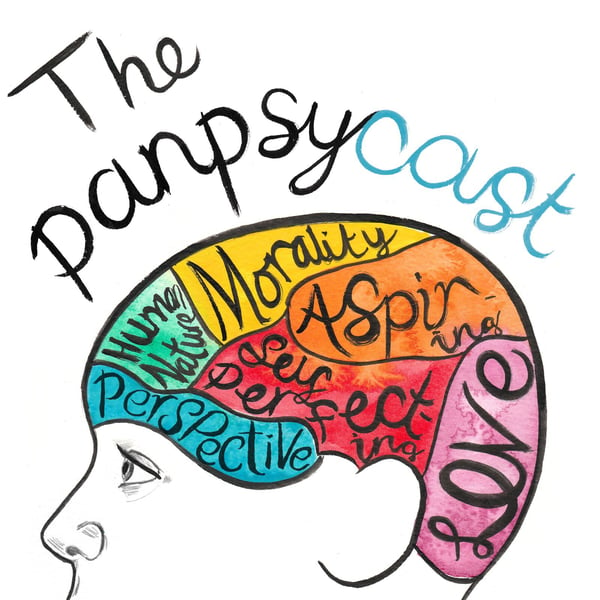Episode 132, ‘The Concept of Beastliness’ with Ellie Robson (Part II - Further Analysis and Discussion)
The Panpsycast Philosophy Podcast
Jack Symes | Andrew Horton, Oliver Marley, and Rose de Castellane
4.8 • 604 Ratings
🗓️ 28 July 2024
⏱️ 33 minutes
🧾️ Download transcript
Summary
Philosophy is about concepts – what it is to be moral, to be in love, or belong to the human species – and these concepts pervade every aspect of our lives. Yet, what images come to mind when you think of Immanuel Kant, David Hume, or René Descartes? For many of us, we imagine Descartes in his armchair, Hume at his desk, and Kant on one of his solitary walks. We certainly don’t imagine these figures, wearing boiler suits…
For Mary Midgley, the image of a philosopher withdrawn from the realities of everyday affairs represents precisely where philosophy has gone wrong. For Midgley, philosophy is best understood – not as an exercise of self-indulgent scholarship – but as a sort of plumbing. Our concepts run through our societies like the pipes through our homes, and it’s the job of the philosopher – that is, the plumber – to examine the pipes and keep the water from swamping the kitchen floor. For Midgley, we need philosophy, just as we need plumbing…philosophy’s not a luxury; it’s a necessity.
Joining us to discuss the philosophy of Mary Midgley is Dr Ellie Robson. Dr Robson is a British Society for the History of Philosophy Postdoctoral Fellow and Teaching Associate at Nottingham University. Ellie – whose work primarily focuses on the history of philosophy and meta-ethics – is one of the leading scholars of philosophy on Mary Midgley’s life and work. In this episode, she’ll illustrate Midgley’s meta-philosophy and meta-ethics through her analysis of the concept of beastliness.
Let’s dig up the floorboards and see what’s leaking.
Contents
Part I. The Roots of Human Nature
Part II. Further Analysis and Discussion
Links
Ellie Robson, Mary Midgley’s Beast and Man: The Roots of Human Nature: a re-appraisal (paper)
Ellie Robson, Mary Midgley on Water and Thought: Is Public Philosophy Like Plumbing? (article)
Mary Midgley, The Concept of Beastliness (paper)
Mary Midgley, Beast and Man (book)
Mary Midgley, The Myths We Live By (book)
Transcript
Click on a timestamp to play from that location
| 0:00.0 | Pan, pan, pan, pan, pan, pan, pan, pan, pan, pan, pan, pan, pan, pan, pan, pan, pan, pan, |
| 0:07.2 | Scicast! |
| 0:08.0 | Part two of further analysis and discussion. |
| 0:26.1 | In the previous instalment, we spoke about Mary Midley's analysis of the concept of beastliness, |
| 0:31.4 | where Midgley argues against a fear of fatalism, the idea that defining humans as beasts makes us more likely to be |
| 0:39.6 | beasts, misuse of words like instinct and what she calls ethological propaganda. |
| 0:45.7 | I'd like to begin this section by thinking about how we can build on this analysis. |
| 0:50.7 | That is, if Midgeley's right and our understanding of beastliness is mistaken, if this notion |
| 0:58.5 | of beastliness is like a problem, if it's one of the blockages in the plumbing and we need |
| 1:04.6 | to get rid of it, then what happens then? |
| 1:07.2 | What happens when the water is flowing? |
| 1:08.8 | What impact is removing this blockage have on our lives and ethics? |
| 1:12.6 | Great. Okay. So, Midgeley's going to say, once we've rejected this mythic view of animals, |
| 1:18.6 | we're going to be able to better understand ourselves as a kind of animal. And this is really, really cornerstone to Mitchley's moral philosophy. She thinks that the history of philosophy has taught us that we are purely rational beings |
| 1:29.5 | that has contributed to this myth of animals being beasts. |
| 1:33.3 | So once we've rejected this and taken this pin out of animals being a kind of beast, |
| 1:38.1 | Midgley's going to say, we're going to be able to appreciate our human nature as more complex. |
| 1:42.7 | So by getting this, what she might call as a false dualism or a false dichotomy between |
| 1:47.4 | beasts on the one hand and man on the other, the name of her first book, Beast and Man, |
| 1:51.2 | once we've rejected this dualism, we're going to see that human nature is actually much |
| 1:55.6 | more complex and much more interesting than the what the history of philosophy has told us. |
| 1:59.8 | So it's not just about doing the rational thing, such as philosophers like Kant have told us. |
... |
Please login to see the full transcript.
Disclaimer: The podcast and artwork embedded on this page are from Jack Symes | Andrew Horton, Oliver Marley, and Rose de Castellane, and are the property of its owner and not affiliated with or endorsed by Tapesearch.
Generated transcripts are the property of Jack Symes | Andrew Horton, Oliver Marley, and Rose de Castellane and are distributed freely under the Fair Use doctrine. Transcripts generated by Tapesearch are not guaranteed to be accurate.
Copyright © Tapesearch 2025.

